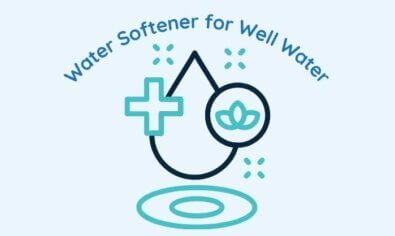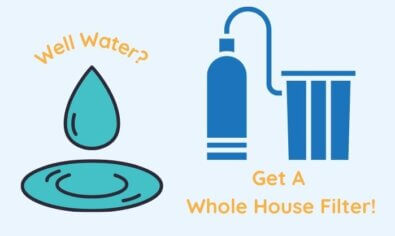Salt vs. Salt-Free Water Softeners: Which is Best for Your Home and Health [Infographic]
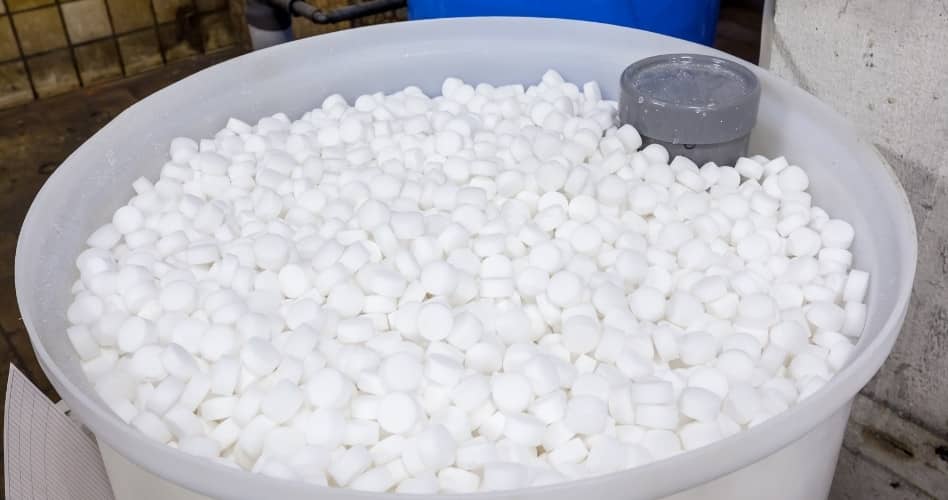
- Salt-based water softeners eliminate hard water minerals.
- Salt-free water softeners condition hard water minerals to not form scale in plumbing but don’t eliminate them.
- Salt-based softeners offer many more benefits than salt-free systems, with the only drawback being salt usage.
- We recommend salt-based water softeners to people looking to save money by protecting their homes and appliances and/or people looking for radium-free water.
Keep Reading to Settle the Salt vs. Salt-Free Water Softeners Debate!
Buying a water softener is a major investment, and choices are never easy when a lot of money is on the line! That’s why we’ve put together this helpful guide to choosing between salt vs. salt-free water softeners.
In this guide, you will learn what each of these softeners is and how it works. Then we will examine the pros and cons of owning each and give our professional opinion on which is better. Let’s get started!
What is a Salt-Based Water Softener?
A salt-based water softener uses a process called ion exchange to eliminate the minerals that cause hard water. These minerals include calcium and magnesium.
Here’s how it does this:
A typical salt-based softener consists of two tanks. One tank has a metered valve on top of it and is full of small resin beads. This tank is called the resin tank. The other tank contains a brine mix of salt and water. This tank is called the brine tank.
Hard water flows into the resin tank. The resin beads then soften the water by removing the hard water minerals. The newly softened water is then sent into your home for you to enjoy.
The resin beads can only collect so many calcium and magnesium minerals before they need to be cleaned. That’s what the brine tank is for. Every few days, the salt and water mix from the brine tank is sent into the resin tank, where the sodium cleans the resin and then gets washed away.
What is a Salt-Free Water Softener?
The phrase salt-free water softener is a bit of a misnomer. This is because salt-free water softeners don’t technically soften the water. Instead, they condition the water by crystalizing the calcium and magnesium ions to keep them from forming scale within a plumbing system. So, salt-free water softeners should really be called salt-free water conditioners.
Unlike a salt-based system, a salt-free water conditioner consists of only one tank containing tiny pieces of potassium. When the hard water flows through the potassium, a chemical reaction crystalizes the calcium and magnesium particles. Then the water is sent back into your plumbing system, where it won’t be able to form any scale.
The problem is when the water exits your plumbing system and hits oxygen, the calcium and magnesium particles detach from the water droplets and can still wreak havoc in your home. So, many of the problems associated with hard water will likely still occur.
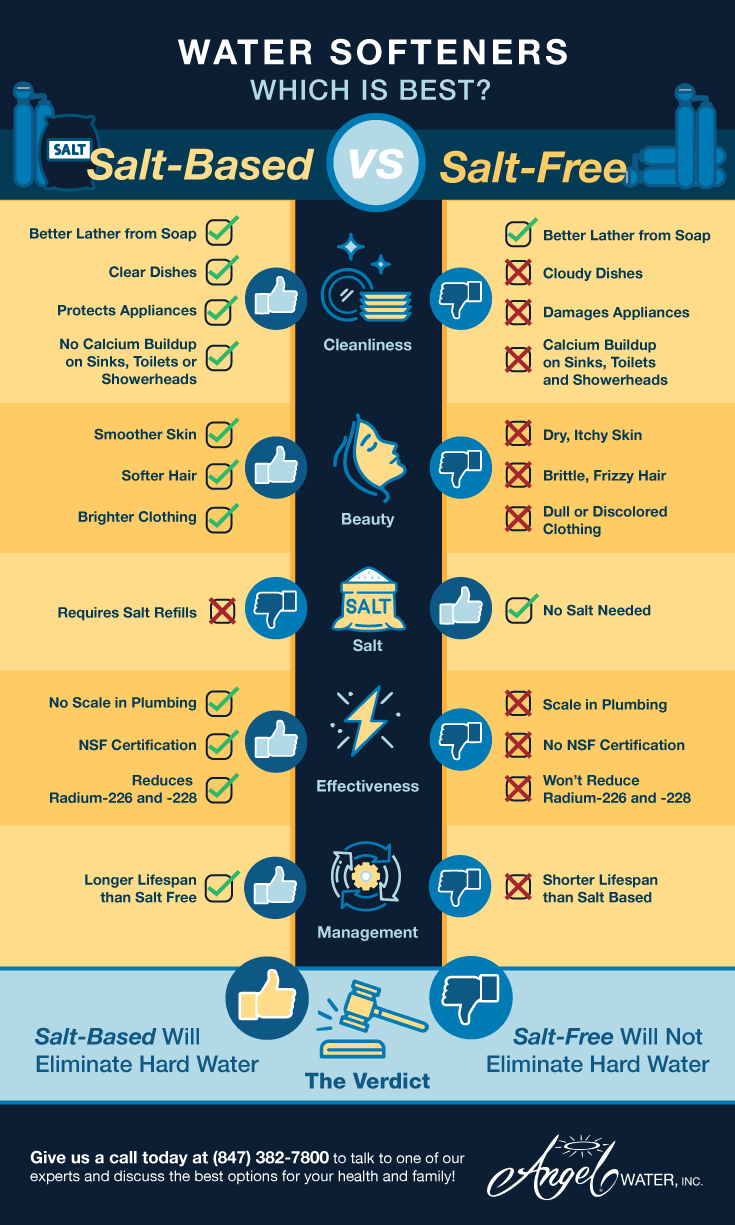
Which is Better: Salt-Based Softener or Salt-Free Water Conditioner?
Now that you understand how each system works, it’s time to decide which system you want in your home.
We find that the most helpful way to do this is to make pros and cons lists. So, we have done that for both salt-based and salt-free systems.
We hope this helps make your decision easier!
Pros of Owning a Salt-Based Water Softener
Salt-based water softeners completely remove hard water minerals. As a result, they eliminate many of the problems associated with hard water.
In other words, a salt-based water softener will provide all the following benefits:
- No more cloudy dishes and glassware
- Prevents clogs in plumbing from excess hard water minerals
- Smoother and more moisturized skin after showering
- Hair that is softer and easier to maintain
- No more crusty marks and scale buildup on sinks, toilets and showerheads
- Clothing that looks brighter and feels cleaner after washing
- Stops calcium from damaging your water heater and dishwasher
- Better lather for soap and dishwashing liquid
- Can lower heating bills by 30%
Beyond this, salt-based water softeners can also be very dependable. For example, the best salt systems on the market are NSF/ANSI 44 certified. This means they have gone through a rigorous inspection process to ensure they will do what they say they’ll do.
NSF/ANSI 44 certified systems can also remove cancer-causing radium-226 and -228 from the water. This benefit is especially advantageous for people in Chicago since these are common contaminants in our region.
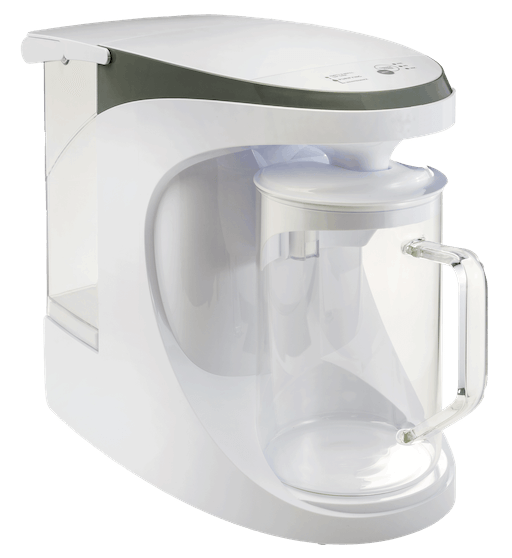
Stop Wasting Money!
Are you spending money every month on Bottled Water for your home or office? That adds up quickly and with inflation, it’s only going to cost more tomorrow.
With the NEW purAsure Counter top Reverse Osmosis System you never have to pay for another case of plastic bottles! Get yours before the price goes up and Enjoy cleaner, healthier water on demand!
Finally, NSF/ANSI 44 certified softeners also tend to have a longer lifespan than systems without that certification.
Cons of Owning a Salt-Based Water Softener
The only cons of owning a salt-based system relate to the fact it uses salt. Because of this, you will have to purchase bags of salt to replenish the brine tank. These large bags of salt are heavy to lift and can hurt your back if you’re not careful.
People on a low sodium diet also worry about the softener adding sodium to their water. And it does add some but not much. How much it adds will depend on how hard your water is. But typically, it’s around 12.5mg of sodium per 8 oz glass of water.
Pros of Owning a Salt-Free Water Conditioner
The main selling point of salt-free systems is they eliminate the hassles of salt. So, you won’t have to lug around heavy bags or worry about increasing your sodium intake.
Other than that, salt-free conditioners can improve your water in the following ways:
- Keep scale from forming on plumbing
- Produce better soap lather
Also, if space is a concern for you, the single tank of the salt-free softener takes up slightly less space than the two-tank salt-based system.
Cons of Owning a Salt-Free Water Conditioner
The problem with salt-free systems is they don’t soften the water. Therefore, if you’re currently experiencing any of these hard water problems, you can expect them to persist:
- Cloudy dishes and glassware
- Cracked or dried-out skin after showering
- Dry, brittle hair after showering
- Crusty marks and scale buildup on sinks and showerheads
- Orange crusty rings around the water line in your toilet
- Calcium buildup on the heating elements of your dishwashers and water heaters
- Faded and discolored clothing after washing
- Increased heating bills
Aside from these drawbacks, salt-free water softeners also lack NSF/ASNI 44 certification. This means they can’t remove radium-226 and -228 from the water as some salt-based systems can. (However, some salt-free systems do have NSF/ASNI 61 certification. We recommend looking for this certification if you decide to go with a salt-free conditioner.)
Finally, saltless conditioners also tend to require more maintenance than their salt-based counterparts. The reason for this is they fail to reduce the hardness of the water sitting inside them. As a result, this water can produce scale buildup and reduce the effectiveness of the system.
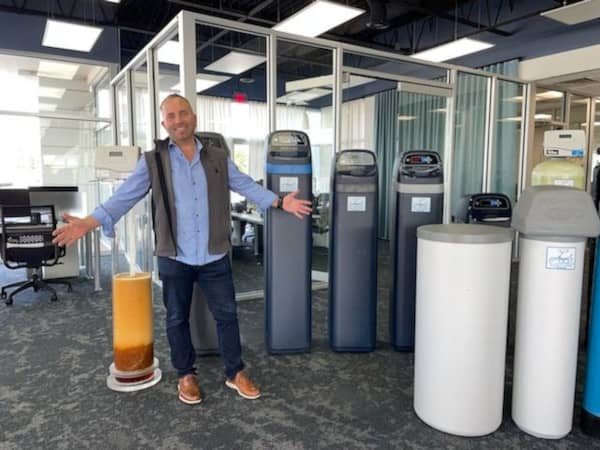
The Verdict: Should I Pick a Salt or Salt-Free System?
At Angel Water, our mission is to make your water healthier for your home and family. With that in mind, here’s our professional opinion on salt-based water softeners vs. salt-free water conditioners:
A salt-based water softener will make your water healthier, and a salt-free system won’t. Therefore, we always recommend salt-based systems to clients looking to get the most benefits possible.
But this is not to say you should never choose a salt-free conditioner. On the contrary, we sell saltless softeners right alongside their salt-based counterparts. And it could be the solution you’re looking for if the only problems you have are lugging salt and scale buildup in your plumbing.
But we want to be clear that a salt-free system won’t eliminate hard water. We’ve had many people come to us complaining about this. So, we want to protect you from that disappointment by keeping you from making that mistake.
Need Help Finding the Right Softener for Your Home?
We hope this guide has helped you weigh the pros and cons of salt-based softeners vs. salt-free conditioners and come to a decision. Whether you choose to go saltless or want a salt-based softener, we can help you find the right softener for your home. We have a full range of systems from top brands like EcoWater for you to choose from.
If you want to figure it out right now, try our interactive Water Wizard! It will walk you through the steps to determine the right softener for you. You can also give us a call at 847-382-7800 to speak to an expert today! We provide services throughout Chicagoland and Southeast Florida.
Editor’s Note: This blog was originally published in October 2017 and updated in October 2021.
Want Softer Water? Schedule an Appointment Now!
Find out how a water softener can help protect your home from hard water damage. Schedule an appointment with our water specialists today to explore the best solutions for your home.

